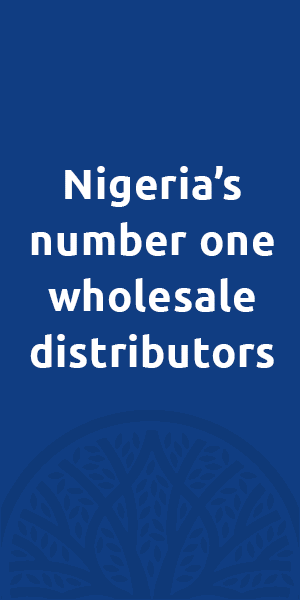
-
Register
All you need is a Jump.AFRICA account
With your Jump.AFRICA account, you can use all our services, current and future...
Register
Welcome to the Jump.AFRICA Community
- Login
- EN
Business & Investments1 posts
CBN Suspension of FX Supply to BDCs Boosts Banks' Income
In the wake of Central Bank of Nigeria (CBN) suspending Foreign Exchange (FX) supply to Bureau De Changes (BDCs), six banks in nine months of 2021 produced N145.6billion revenue from exchanging FX.
The six banks in earlier nine months of 2020 had created a sum of N47.16billion from exchanging the FX market.
The six banks are Sterling bank Plc, Union Bank of Nigeria Plc, Wema Bank Plc, Guaranty trust Holding Company Plc (GTCO), Access bank Plc and United Bank for Africa Plc (UBA).
For example, Sterling Bank announced N4.75billion from FX trading nine months of 2021 from N128million revealed in nine months of 2020, while Wema Bank developed its FX trading income by 47% to N207million nine months of 2021 from N141 million in nine months of 2020.
Union Bank of Nigeria announced N3.44billion FX trading income nine months of 2021, an increase of 51.05 percent from N2.28billion announced in nine months of 2020.
Tier-1 banks also benefitted massively from FX exchanging pay the period with Access bank announcing a net FX exchanging gain of N86.81billion nine months of 2021, 587 percent expansion from N12.63billion revealed in nine months of 2020.
United Bank of Africa detailed 78.8 percent increment in FX trading income to N35.56billion nine months of 2021 from N19.88billion in nine months of 2020, while GTCO developed its FX tradingg gain to N14.88billion nine months of 2021 from N12.10billion revealed in nine months of 2020.
The Central Bank had in July this reported that it has finished the deals of FX to BDC administrators, expressing that the equal market has turned into a conductor for illegal FX flows of currency.
The national bank had additionally declared that it will likewise at not approve applications for BDC licenses in the country.
Analysts communicated that the suspension of FX to BDC administrators decidedly affected on banks worth of FX exchanging, focusing on that the change of Naira to N410.8 (selling rate) against the Dollar additionally added to trading income.
The Governor, Central Bank, Mr. Godwin Emefiele in February expressed that naira deteriorated at the authority market to N410 against the dollar.
Emefiele said the drop in raw petroleum income and the related decrease in foreign portfolio inflows essentially impacted the stock of unfamiliar trade into Nigeria.
He said, "In order to adjust for the decrease in the supply of foreign exchange, the naira depreciated at the official window from N305/$ to N360/$ and now hovers around N410/$."
Talking with THISDAY on the turn of events, investigator examiner at PAC Holdings, Mr. Wole Adeyeye said the volume of FX exchanging banks expanded in the midst of the CBN suspension of FX to BDCs.
He stated that clients needing FX for Basic Transport Allowance (BTA), among other legitimate exchanges engaged prompting an increase in generated income during that period.
“A lot bank customers who transact foreign business and, seeking for Personal Travel Allowance (PTA) drive volume of FX trading in the banking sector. Besides, the adjustment of FX by CBN also impacted on income generated by banks,” Adeyeye.
Also speaking, the Vice President, Highcap securities, Mr. David Adnori, said the fee charged on FX income increased in the period as banks recorded hike in flow of transactions.
“Bank customers who could have accessed FX from BDC operators were patronizing banks and that increases fees they were collecting from collecting. Banks were also trading FX which is expected to increase income generated in the period.”
He clarified further that increasing foreign reserves implies the apex bank can meet all legitimate transactions channeled through banks.
The CBN had said that parallel market represented less than one percent of FX transactions and should never be used to determine Nigeria’s dollar exchange rate.
However, some banks recorded decline, while some losses amid the FX devaluation of the naira.
Top tier 1 banks like Zenith Bank and GTCO recorded decline, while UBA recorded loss in the period under review.
Zenith Bank in nine months of 2021 recorded 25 per cent in foreign currency revaluation gain to N15.42 billion from N20.57billion reported in nine months of 2020, while GTCO’s Foreign currency revaluation gain dropped by 28 per cent to N15.48billion in nine months of 2021 from N21.62billion in nine months of 2020.
In addition, UBA reported foreign currency revaluation loss of N11.2 billion in nine months of 2021 from N9.23billion reported in nine months of 2020.
Adnori added that: “a weaker naira also increases Nigerian banks’ risk-weighted assets related to their foreign currency loans, putting negative pressure on their capital metrics, but, the banks hold good capital buffers.”
 Back
Back
 Home
Home







